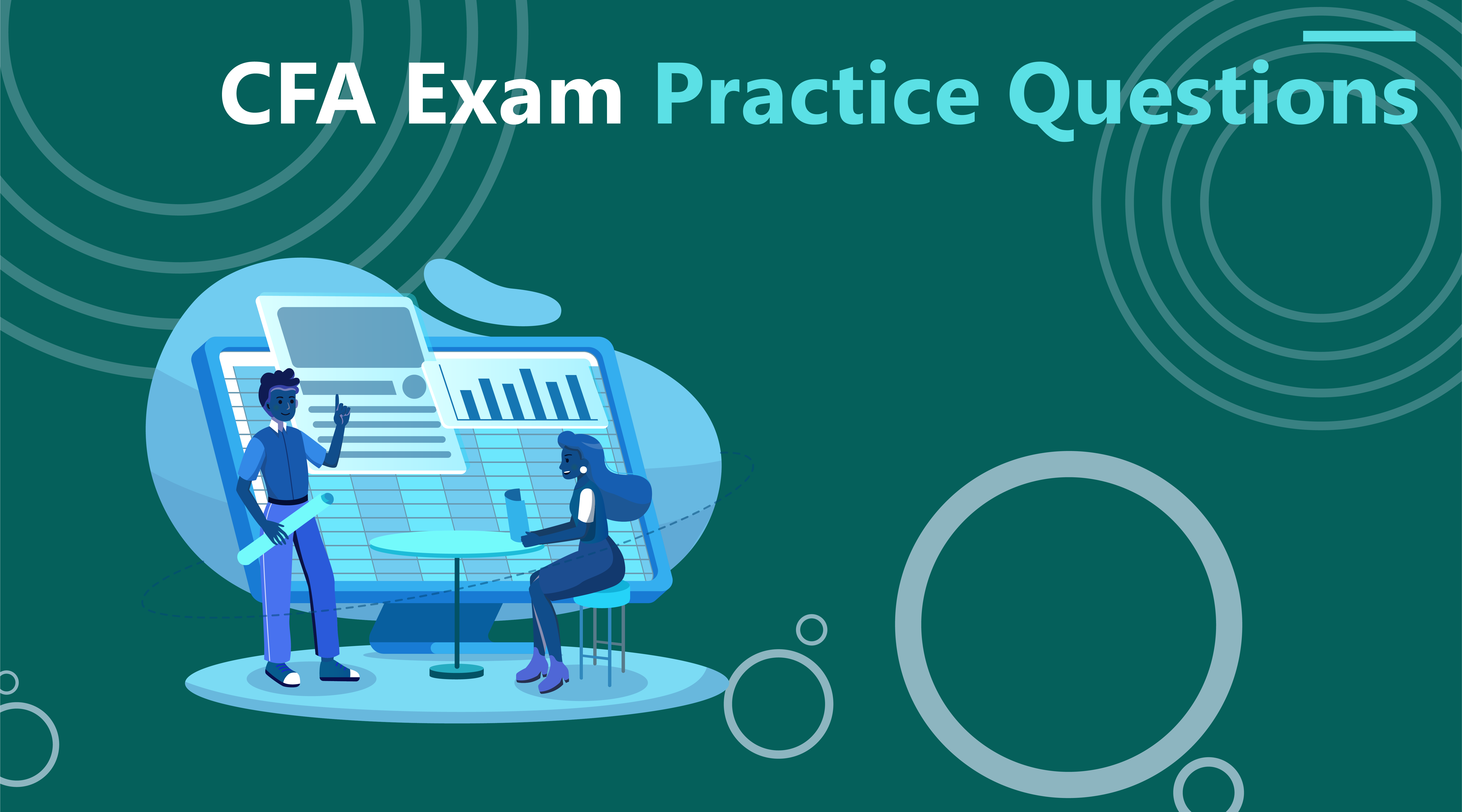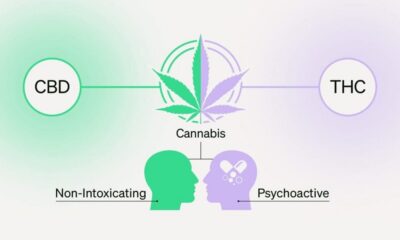Technology
Most Frequently Asked Questions About Level I of the CFA Exam

Let’s start with the basics: what’s this CFA® Charter everyone’s talking about? The CFA Charter is a professional designation granted by the CFA Institute to individuals who meet the necessary qualifications, including passing all three levels of the CFA exam. It’s one of the most recognized credentials in finance. The process isn’t a walk in the park—it requires you to not only pass the exams but also have relevant work experience.
You’re probably wondering: how exactly do you earn this charter? First, you need to pass Levels I, II, and III of the CFA exams. Each level is progressively harder. But it’s not just about passing exams. You also need to meet the CFA Institute’s work experience requirements (typically four years in a related field). After all that, you can officially use the CFA designation after your name. Simple, right? Well, it’s worth the effort if you want to stand out in the finance world.
Is the CFA Charter a Degree?
Here’s the thing: the CFA Charter isn’t a degree, but it’s often seen as an equivalent to a master’s in finance, and sometimes even more. It’s a professional credential, not an academic qualification. So, no, you won’t get a diploma or the typical “degree” recognition. However, in the finance industry, having the CFA designation often opens doors that a typical master’s degree can’t.
Why does it matter? The CFA Charter tells employers that you’ve mastered the skills they’re looking for in an investment professional. It’s a validation of your expertise and your commitment to a high standard of ethics. So, while it’s not a degree, it’s still a game-changer if you want to make a serious career in finance.
What to Expect on the CFA Level I Exam?
Let’s cut to the chase: the CFA Level I exam is a beast. Expect a lot of material, and it’s all foundational stuff. The Level I exam primarily tests your knowledge of the basic tools and concepts in financial analysis, ethics, and economics. You’re not expected to apply this knowledge in real-world scenarios (that’s for later levels).
It’s structured with 240 multiple-choice questions, split into two sessions: morning and afternoon. The questions are designed to test both your knowledge of theory and your ability to apply that knowledge. They’ll throw everything at you, from financial reporting and analysis to portfolio management. It’s tough, and it’s intense, but with the right prep, it’s doable.
What Are the CFA Level I Exam Dates?
You’re probably itching to know when the CFA Level I exam takes place. Well, the good news is that it’s offered several times a year. The exact dates change, so you’ll need to check the CFA Institute’s website to find out the available dates for the year. Most candidates choose to take the exam in either February, May, August, or November.
It’s a good idea to register early to avoid any scheduling headaches and secure your spot. Keep in mind that different exam windows have different deadlines, so it’s essential to mark those on your calendar to avoid missing out. Pro tip: scheduling earlier can also save you money on the exam fee.
Can I Postpone My CFA Exam After I’ve Registered?
Life happens, and sometimes you might need to postpone your CFA Level I exam. But, here’s the kicker—unlike some other professional exams, the CFA Institute doesn’t really let you just “postpone” on a whim. Once you register, the clock is ticking. However, you can reschedule your exam for a different window if something major comes up, but you’ll likely need to pay a fee to make the change.
That said, don’t plan on using this option unless something significant happens—like a medical emergency. If you’re thinking about postponing just because you’re not ready, it’s better to stick with your current exam date and push through. The CFA Level I exam isn’t going anywhere, but you can always take it next time if needed.
What Are the Requirements to Sit for the CFA Exam?
The CFA Institute has a set of requirements for those looking to sit for the CFA Level I exam. First, you need a bachelor’s degree (or you must be in the final year of your degree program). Alternatively, if you’ve got four years of professional work experience (even if it’s not finance-related), that qualifies too. Or, you could have a combination of work experience and education that adds up to four years.
These requirements are pretty straightforward but don’t expect any hand-holding. You need to make sure you meet these conditions before you sign up. So, if you’re in the final stages of your degree or you’ve been working for a few years in a non-finance role, don’t wait until the last minute to double-check your eligibility.
What Is the Format of Level I of the CFA Exam?
If you’re thinking about what kind of exam you’ll be walking into, here’s the rundown. The CFA Level I exam is split into two sessions: a morning and an afternoon session, each containing 120 multiple-choice questions. You’ll get a total of six hours to finish the whole exam.
Each question will have three answer options, and your task is to pick the one that best fits the scenario. A lot of candidates find the format repetitive, but this doesn’t mean the exam is easy. The questions test both your understanding of finance concepts and your ability to apply them, so don’t take the format for granted. Get used to practicing under time pressure to make sure you’re fully prepared.
What Subjects or Topics Are Tested on the Level I CFA Exam?
The CFA Level I exam covers a wide range of topics. Here’s what you’ll be dealing with: Ethics and Professional Standards, Quantitative Methods, Economics, Financial Reporting and Analysis, Corporate Finance, Equity Investments, Fixed Income, Derivatives, Alternative Investments, Portfolio Management and Wealth Planning, and finally, Risk Management.
Each of these subjects builds a foundational knowledge base in finance, and while they are all essential, some topics might require more of your attention. For example, Financial Reporting and Analysis (FRA) is a major chunk of the exam, so it’s worth spending a little extra time here.
What Are the Weights of the Topics of Level I of the CFA Exam?
Now, let’s talk about the weighting of these topics. CFA Level I doesn’t give equal importance to all subjects, so it’s good to know where to focus your energy. Ethics usually accounts for about 15% of your total exam score. Financial Reporting and Analysis, along with Quantitative Methods, each account for 10-12%, making them areas you should prioritize. On the other hand, topics like Alternative Investments and Portfolio Management carry less weight, so while still important, they don’t need as much focus.
How Much Time Does It Take to Study for the CFA Level I Exam?
You’ve probably heard that most candidates spend around 300 hours preparing for the CFA Level I exam, but let’s get real: that’s a guideline, not a hard-and-fast rule. The amount of time you need to study depends on your background. If you’re already well-versed in finance, you might need less time. But if you’re new to finance or have been away from it for a while, you might need to put in more hours.
If you can dedicate about 10-15 hours per week over several months, you’ll be in good shape. It’s not just about the time; it’s about making that time count. Focus on consistency, and break your study sessions into manageable chunks.
How Hard Is the CFA Level I Exam?
Anyone who’s even thought about the CFA Level I exam has probably asked, “How hard is it?” The short answer: it’s tough. The CFA Level I exam is widely regarded as one of the more challenging professional exams you can take, and for good reason. You’re expected to cover a massive amount of material, much of it technical. But it’s not all about brute force memorization—understanding the concepts and applying them is just as important.
Is it doable? Absolutely. But, it requires a solid study plan, consistent effort, and the ability to stay calm under pressure. The exam is designed to test your knowledge and your ability to recall and apply that knowledge. It’s not a walk in the park, but with the right mindset and preparation, you can pass.
How Is Level I of the Exam Graded?
When it comes to grading, the CFA Level I exam operates on a relatively straightforward system. Each of the 240 multiple-choice questions is worth one point, and there’s no penalty for wrong answers. This means you should always guess if you’re unsure about a question, since you won’t lose any points for it.
To pass, you’ll need to score at least 70% overall. The CFA Institute doesn’t disclose exactly how they grade, but the passing score tends to be around the 70% mark, depending on the difficulty of the exam that year. The key is to aim for consistency across all topics rather than focusing solely on one area. This is why broad, even preparation is vital.
What Is the CFA Level I Exam Pass Rate?
The pass rate for the CFA Level I exam fluctuates from year to year, but typically it hovers around 40-45%. So, no, it’s not an easy exam. The CFA Institute has some of the most stringent standards in the professional certification world, and only those who put in the work and show up prepared tend to pass.
In recent years, the pass rate has been somewhat volatile due to the pandemic and changes to exam scheduling. But the key takeaway? Don’t let the pass rate discourage you. While challenging, the CFA Level I exam is designed for those who have the right preparation and mindset. If you follow a well-structured study plan, you’ll be in a good position to beat the odds.
How Much Does It Cost to Sit for the CFA Level I Exam?
One question that often comes up is: how much will this cost? Well, it depends. The CFA Level I exam fees can range anywhere from $700 to $1,500, depending on when you register and what fees apply (like the CFA Institute’s membership fee). Early registration tends to be cheaper, so planning can save you money.
It’s important to note that while the exam fee is one part of the cost, you’ll also need to budget for study materials, mock exams, and possibly travel expenses if the exam location is far from you. Some people also opt for CFA Level 1 dumps or practice exams, which can add additional costs.
Can I Take a CFA Level I Mock Exam In-Person?
While many CFA Level I candidates choose to practice with online mock exams, the option for in-person mock exams is available too. If you’re the kind of person who prefers a traditional classroom environment to focus better, you can find in-person mock exams organized by CFA prep providers.
These in-person mock exams are a great way to simulate real exam conditions and gauge your readiness. Plus, you’ll have the chance to ask questions, clarify doubts, and receive personalized feedback from experts. But be aware that these in-person options may come with a hefty price tag, so weigh the benefits before deciding.
What Are Practical Skills Modules (PSMs)?
Practical Skills Modules (PSMs) are a part of the CFA Institute’s efforts to prepare you for the real world. They provide candidates with modules designed to build practical, job-related skills that complement the knowledge tested in the exams. While PSMs aren’t mandatory, they offer an excellent opportunity to gain practical insights into areas like financial analysis, corporate finance, and investment management.
These modules are typically interactive, offering case studies and simulations to help develop skills you’ll need in your career, even after the CFA exam. It’s not just about memorizing formulas and theories—it’s about understanding how to apply them in the real world. They can be a good supplement to your study routine, especially if you’re looking to apply your CFA knowledge right away.
CFA Program Practical Skills Modules Guide
Let’s dive a little deeper into the PSMs and how you can make the most of them. These modules cover various key areas of the CFA curriculum, offering hands-on experiences that take you beyond the textbook. Some PSMs focus on real-life financial modeling, data analysis, and other essential financial services tasks. They can help bridge the gap between theory and practice.
For candidates who want to go above and beyond, these modules can be particularly useful. After all, it’s not just about passing the CFA exams but also being able to demonstrate your ability to put that knowledge into action. Whether you’re already working in finance or looking to break into the industry, PSMs can provide valuable insights into practical financial skills.
What Score Should I Be Getting on My Level I Mock Exams?
Mock exams are a crucial part of preparing for the CFA Level I exam. The reality is that you should be aiming to score at least 70-80% on your mock exams before you’re ready to take the real test. A lot of candidates make the mistake of thinking they’re ready after only completing a few practice questions, but mock exams simulate the actual exam experience and will test your knowledge and endurance.
If your mock exam scores are below 70%, it’s time to hit the books again. Don’t get discouraged by a bad mock exam result. Use it as a learning tool to identify weak areas in your knowledge and devote more time to improving those sections. Ideally, you should be taking mock exams regularly during your study schedule to track your progress and adjust your approach if necessary.
Ready to Start Preparing for the CFA Exam?
If you’re reading this, you’re already on the right track toward becoming a CFA charterholder. The CFA Level I exam is challenging, but with the right mindset, strategy, and preparation, you can pass it. Here’s the takeaway: start early, break down your study material into digestible chunks, and make sure you’re comfortable with the format and time constraints of the real exam.
Remember, it’s not just about studying hard but studying smart. Get the right resources, understand the exam structure, and keep practicing with mock exams. With consistent effort, you’ll be ready to crush the CFA Level I exam and move on to Level II with confidence. Good luck!
Technology
Why AI Employee Tracking Alone Can’t Build a Thriving Company

Imagine running a small business where every keystroke, email, and coffee break is tracked by an algorithm. Sounds efficient, right? But when I helped a friend streamline her startup’s operations in 2025, we quickly learned that relying solely on AI employee tracking—like the best employee tracking software—can backfire. While tools like Controlio offer powerful insights into productivity, they miss the human spark that makes a company truly great. Let’s explore why AI tracking alone isn’t enough and what really drives a thriving workplace.
The Limits of AI Tracking: Numbers Over Nuance
AI employee tracking tools, like the Controlio app, are designed to boost efficiency by monitoring metrics such as time spent on tasks or app usage. They’re fantastic for spotting patterns—say, identifying when your team’s bogged down by repetitive work. But here’s the catch: they reduce people to data points. When my friend’s startup leaned too heavily on tracking software, her team felt like cogs in a machine, not valued contributors.
Research shows that excessive surveillance can tank morale. A 2024 Cornell study found employees under AI monitoring reported higher stress and lower productivity compared to those with human oversight. Why? Algorithms lack context. They can’t tell if someone’s late because they were helping a colleague or if a long email thread was a creative brainstorm. Over-reliance on AI risks alienating your team, stifling the very innovation you’re trying to foster.
Human Connection: The Heart of a Great Company
Great companies aren’t built on dashboards alone—they thrive on trust, collaboration, and shared purpose. I saw this firsthand when my cousin’s catering business hit a rough patch. Instead of doubling down on tracking tools, she hosted weekly team huddles to share ideas and celebrate wins. The result? Her staff felt heard, and turnover dropped by 30% in six months.
AI can’t replicate the empathy of a manager who notices a team member’s off day and offers support. It can’t spark the camaraderie of a spontaneous lunchroom chat that leads to a breakthrough idea. Building a strong company culture means prioritizing relationships over reports. Encourage open communication, mentorship, and team-building—elements no algorithm can quantify.
Creativity and Innovation: Beyond the Algorithm’s Reach
AI tracking excels at measuring output but struggles with intangibles like creativity and emotional intelligence. When I worked with a local design agency, we noticed their AI tool flagged “unproductive” hours spent sketching or brainstorming. Yet those moments birthed their best campaigns. Over-focusing on metrics can suffocate the creative freedom that drives innovation.
A 2025 McKinsey report highlights that companies fostering experimentation and collaboration outperform those obsessed with efficiency metrics. Give your team room to take risks—whether it’s prototyping a bold idea or debating a new strategy. Tools like Controlio can track time, but they can’t measure the spark of a game-changing idea born over coffee.
Trust vs. Surveillance: Striking the Right Balance
Constant monitoring erodes trust, and trust is the glue of any great company. Employees who feel watched like hawks are less likely to take initiative or share honest feedback. A Reddit thread from 2024 echoed this, with workers venting about AI tracking making them feel “on edge” and less loyal to their employers.
When my friend’s startup introduced transparent policies about how tracking data would be used—like improving workflows, not punishing pauses—her team relaxed. Use AI tools to empower, not police. Share insights with employees, involve them in decisions, and set clear boundaries. For example, use Controlio to optimize schedules, but pair it with regular check-ins to show you value their input, not just their output.
Ethical Concerns: Avoiding Bias and Burnout
AI isn’t neutral—it can amplify biases or push employees toward burnout. A 2025 Business Insider report noted that poorly designed AI tracking systems may unfairly flag certain groups, like remote workers, due to inconsistent data patterns. Plus, an overemphasis on productivity metrics can lead to exhaustion, with 60% of surveyed employees reporting stress from constant monitoring.
To counter this, regularly audit your AI tools for bias and ensure they align with your company’s values. Promote work-life balance with policies like flexible hours or mental health days. My friend learned this the hard way when her team’s morale dipped—she countered it with wellness programs, and productivity soared.
Final Note: Blend Tech with Heart for Lasting Success
AI employee tracking, like the Controlio app, is a powerful tool for streamlining operations, but it’s not a magic bullet. Great companies are built on trust, creativity, and human connection—qualities no algorithm can fully capture. My friend’s startup flourished when she balanced tech insights with genuine care for her team, proving that people, not just data, drive success.
In 2025, embrace AI as a helper, not a boss. Use tools to spot inefficiencies, but invest in mentorship, open dialogue, and a culture where employees feel valued. That’s the recipe for a company that doesn’t just survive but thrives. Ready to strike that balance? Start exploring smarter ways to blend tech and heart today.
Technology
“Duster SUV: Complete Guide to Features, Specs, Safety, and Buying Tips”

Introduction
The word Duster brings to mind a simple, sturdy SUV many people trust. This car feels practical and honest. It fits families, adventurers, and daily drivers alike. People praise its space, its simple tech, and its low cost to own. In this article, I explain what makes the Duster special. I use clear, short sentences that are easy to read. I give real facts, helpful tips, and plain advice. I show numbers where they matter and share trusted insights. Read on for design notes, engine choices, safety facts, buying tips, and six common questions. By the end, you will know whether this model suits your life and budget.
What it is
The Duster is a compact SUV that blends value with practicality. It started as a no-nonsense crossover people could afford. Over time, it grew more refined while keeping its core strengths. Today it comes in several versions for many markets. You can find models with mild-hybrid help or classic petrol engines. The Duster aims to offer a roomy cabin without high costs. It targets buyers who want a solid SUV without fancy frills. That clear purpose shaped its design and its price strategy. Many drivers see it as an honest car that gives you what you need.
Design and styling
The look of this compact SUV mixes toughness and neat lines. It keeps a broad stance and raised wheel arches. The front often shows a strong light design and simple grille work. Inside, the layout favors durable materials and sensible storage. The exterior has roof bars and protective cladding for outdoor use. Designers focused on useful features over delicate trims. That choice helps keep repair costs low over time. If you want flashy leather and soft touch everywhere, this might not be it. But if you want a rugged, honest SUV ready for trips, it fits the bill.
Engines and powertrains
You can pick from small petrol engines and mild-hybrid setups. Some markets also see a larger 2.0 petrol and 4×4 option. Engine output varies by region and trim level. The simplest petrol is easy to maintain and quite fuel friendly. The mild-hybrid choice helps with short town runs and saves fuel. For tougher terrain, a 4×4 option offers extra traction and control. Manuals, CVTs, and automatic options appear depending on model year. Always check exact engine details where you live before you buy. Each version balances performance and fuel economy differently.
Fuel economy and efficiency
This SUV can be quite frugal, depending on the engine you pick. Smaller petrols often return good fuel efficiency in mixed driving. Hybrid versions claim better urban economy and lower emissions. The mild-hybrid systems help reduce engine load at idle and in slow traffic. Real-world economy will change with load, terrain, and driving style. Drivers who favor calm acceleration often see the best numbers. If you plan long highway trips, choose an engine tuned for steady cruising. Official figures give a useful baseline when you compare trims.
Off-road capability and ground clearance
Raised ride height makes this model useful on rough tracks and muddy roads. Some trims list over 200 mm of ground clearance for easy approach. Four-wheel drive models include terrain selectors for snow, mud, and sand. The suspension is tuned for resilience rather than sporty handling. Protective skid plates help against rocks and bumps on trails. That setup gives confidence for weekend camping and farm access roads. Still, it is a compact SUV, not a heavy-duty truck. Match expectations to the terrain you’ll tackle most often.
Interior space and practicality
The cabin focuses on smart storage and easy cleaning for busy lives. Boot volume ranges from mid to large capacity, depending on trim and engine. With rear seats folded, the load area grows to take longer items. The double-floor and compartments help keep gear tidy on long trips. Front and rear passengers get sensible legroom for the class. Infotainment supports phone mirroring in many trims for maps and music. Materials lean toward durable plastics and simple switches for reliability. This makes the interior practical for family life and outdoor adventures.
Safety and ratings
Safety equipment varies by market and trim level. Many versions now come with driver aids like lane assist and emergency braking. Older models had fewer safety features, but recent upgrades improved this area. Buyers should look for multiple airbags, stability control, and strong crash ratings. Always compare the fitment of safety tech between trims before you buy. Choosing a version with active safety aids makes daily driving more secure. Families especially benefit from these modern protections.
Ownership and running costs
One big strength is the low cost of ownership compared to rivals. Insurance and repair parts tend to be cheaper for this model. Service intervals are reasonable and many mechanics know the platform. Fuel bills depend on engine and driving habits, but smaller engines keep costs down. Resale value varies by region and trim, so check local used prices. Warranty length also differs by country. If you plan to buy used, ask for full service history and check for rust or heavy off-road wear. Overall, the Duster aims to be affordable to run and repair.
Trim levels and options
Manufacturers offer a clear set of trims from basic to well-equipped. Basic trims give the essentials to keep the price low. Mid trims add nicer infotainment, alloy wheels, and comfort items. Top trims may include leather-effect seats and advanced driver aids. Some regions add unique packs like camping gear or cargo versions. You can often choose bar-style roof racks and protective mats. Decide which features you need before picking a trim. That saves money and avoids paying for extras you will not use.
How it compares with rivals
Against similar compact SUVs, the Duster wins on price and practicality. Some rivals offer fancier cabins or sharper handling. Others will have stronger dealer networks or better long-term resale. If you want rugged looks and simple tech, this model often leads. If you prefer premium fit and more silence inside, look at other brands. Compare boot size, fuel numbers, and safety kit when you shop. Test drives across a few models reveal which feels best for your needs.
Maintenance, tips, and common issues
Routine checks keep this SUV reliable for many years. Watch for common wear items like brake pads and suspension bushes. Keep the air filter fresh if you drive dusty roads often. For long trips, check belts and fluid levels before you leave. Choose genuine parts when possible, but good aftermarket parts can save money. If the car has a CVT, follow the service rules for transmission oil. Joining owner groups can give you tips on common fixes. These small steps help avoid surprises and control repair costs.
Customization and accessories
Owners often add roof racks for bikes and kayaks. Boot liners and mudflaps protect the paint and the interior. For camping, simple tents and sleep packs make trips easier. All-weather mats help keep the cabin clean in winter. Some dealers sell protection packs with skid plates and light guards. Choose only tested accessories that fit factory mounts. Proper accessories raise the car’s usefulness without harming safety. A small investment in the right bits makes the vehicle far more versatile.
Environment and hybrid tech
Newer mild-hybrid and hybrid setups reduce fuel use in town. The hybrid option often lets the engine rest for short electric-only runs. This suits stop-and-go traffic in cities well. Hybrid tech also helps reduce emissions and fuel bills. Still, the fuel gains depend heavily on how you drive. Long highway trips may show less benefit than urban driving. If your commute is mostly city, a hybrid variant can cut costs. Always review real-world test results to compare engines before buying.
Best use cases and who should buy it
The Duster fits families who want space and low costs. It serves people who enjoy weekend trips off the beaten track. Small business owners like cargo versions for city deliveries. First-time SUV buyers get easy driving and affordable upkeep. Buyers who want full luxury or sporty handling should consider other models. If you value honest design, big boot space, and rugged style, this one is sensible. Matching the trim to your needs ensures good value for the money.
Conclusion — is it right for you?
In short, the Duster blends value, space, and rugged practicality. It is not the quietest or plushest cabin in its class. But it will carry people, luggage, and pets without fuss. If low running costs matter, it can be a smart choice. Read the spec sheet carefully in your country before you buy. Test drive the same engine and trim you plan to purchase. Check local prices and dealer support for your area. If you like simple, practical design and honest value, this SUV may fit your life.
FAQs
Q1 — What is the best engine for daily driving?
A small petrol or mild-hybrid often works best for daily use. These choices give low city fuel use. They feel calm and save money on regular runs. If you carry heavy loads often, choose the bigger petrol. For mixed town and highway trips, a mild-hybrid balances economy and comfort.
Q2 — How much boot space does it offer?
Boot space depends on trim and engine choices. Typical figures start around mid-hundreds of litres. Folding the rear seats adds a lot of cargo room. Official brochures list exact litres for each version. Always confirm the details for the model in your region.
Q3 — Is the four-wheel drive model worth it?
Four-wheel drive helps if you face mud, snow, or steep tracks. It adds weight and usually lowers fuel economy. For mostly city driving, a 2WD version is often enough. Choose 4×4 if you need traction on rough ground frequently.
Q4 — Are parts and servicing expensive?
Parts and servicing tend to be affordable compared to premium rivals. Many mechanics know the platform well. Warranty coverage varies by country. Regular servicing and modest care keep costs predictable.
Q5 — How safe is the model?
Safety kit and crash scores differ by year and market. Some older models had fewer aids, but newer versions include more. Look for emergency braking, lane assist, and multiple airbags. Confirm the exact features on the trim you plan to buy.
Q6 — Should I buy new or used?
New gives full warranty and the latest gear. Used saves money but needs careful checks. Ask for service records and inspect for off-road wear. If budget is tight, a certified pre-owned unit can be a balanced choice.
Technology
What is Zivechatz? Full Review, Features, and How to Use It
-

 Technology3 years ago
Technology3 years agoIs Camegle Legit Or A Scam?
-

 Travel3 years ago
Travel3 years agoNEW ZEALAND VISA FOR ISRAELI AND NORWEGIAN CITIZENS
-

 Technology3 years ago
Technology3 years agoRNDcoin: Korea’s first blockchain project and a world-class cryptocurrency
-

 Uncategorized3 years ago
Uncategorized3 years agoAMERICAN VISA FOR NORWEGIAN AND JAPANESE CITIZENS
-

 Fashion1 year ago
Fashion1 year agoGoda Perfume Reviews: Is It Worth Your Investment?
-

 Health3 years ago
Health3 years agoHealth Benefits Of Watermelon
-
Lifestyle1 year ago
A Guide to Silverdaddies: What You Need to Know
-

 Home Improvement8 months ago
Home Improvement8 months agoArtificial Grass Designs: Perfect Solutions for Urban Backyards















